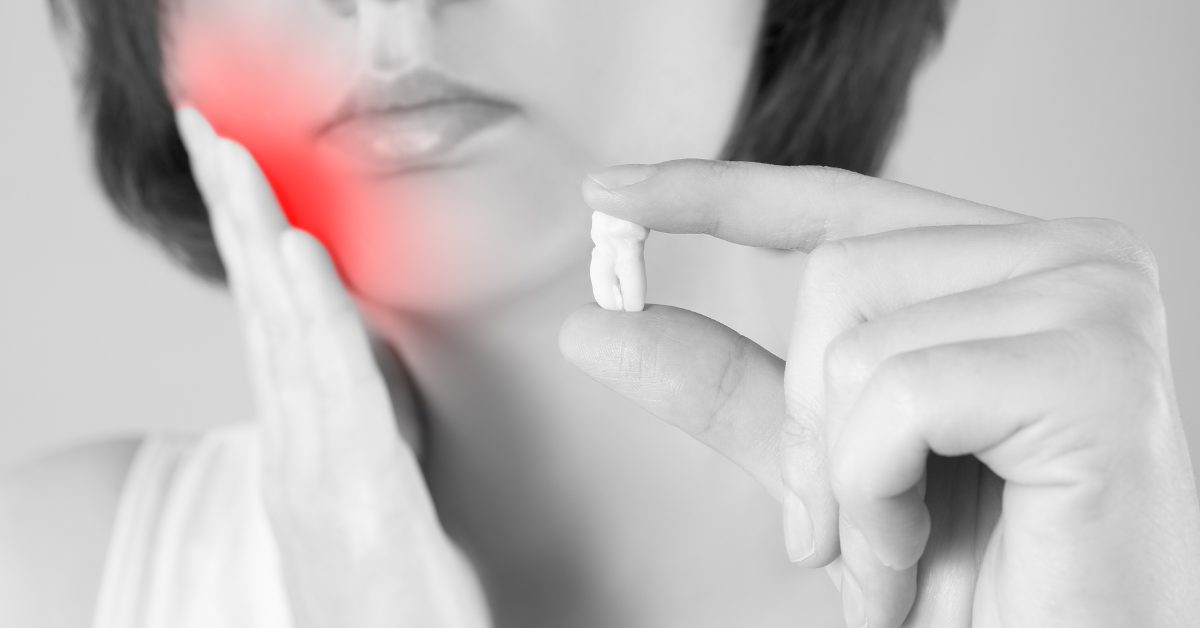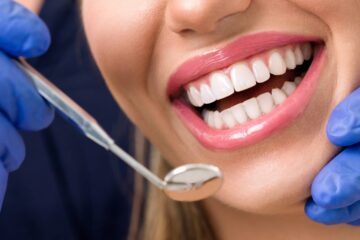Ever felt like there’s a mini construction crew drilling in your head? You’re not alone. When your wisdom teeth decide to make their grand entrance, they can bring along a painful headache.
It’s not your typical headache though, and it’s important to know the difference. In this article, you’ll discover what a wisdom tooth headache feels like, what triggers it, and how you can ease the pain.
Because let’s face it, you’ve got better things to do than nurse a toothache.
Key Takeaways
– Wisdom tooth headaches often start as a dull ache around the jaw and gradually intensify.
– The pain can radiate towards the ears and neck.
– Swelling, redness, and tenderness in the gums at the back of the mouth can be observed.
– Temporary relief can be achieved through over-the-counter pain relievers, cold compresses, and saltwater rinses, but consulting a dental professional is recommended if the headache persists.
Understanding Wisdom Teeth
The first thing you’ve got to understand is what wisdom teeth are and why they’re unique. They’re third molars that typically erupt between the ages of 17 and 21, marking the final stage of the tooth eruption process. This late arrival often leads to misconceptions and fears regarding wisdom teeth.
You might’ve heard that these teeth serve no purpose and should always be removed, a common wisdom teeth misconception. However, when they’re properly aligned and gum tissue is healthy, there’s no need for extraction. Wisdom teeth can actually serve as a valuable asset, aiding in chewing and grinding food.
Yet, the reality is, for many people, wisdom teeth don’t have enough space to erupt fully or even at all. This lack of room can lead to painful impaction, infection, or misalignment of other teeth.
Understanding the tooth-eruption process and dispelling wisdom teeth misconceptions is essential in making informed decisions about your oral health. If you’re experiencing discomfort, don’t jump to conclusions. It’s always best to consult a dental professional who can provide you with accurate information and options.
Signs of Wisdom Tooth Headache
Experiencing discomfort from your wisdom teeth, you might notice a distinct type of headache, a key sign of an impacted or infected wisdom tooth. This sensation often starts as a dull ache around the jaw, gradually intensifying and radiating towards the ears and neck.
Tooth eruption symptoms can further hint at a wisdom tooth headache. You may notice swelling, redness, or tenderness in the gums at the back of your mouth. Sometimes, you may even experience difficulty opening your mouth, a strange taste, or bad breath, indicating a possible infection.
Pain management techniques can alleviate some of the discomfort. Over-the-counter pain relievers, cold compresses, and saltwater rinses can provide temporary relief. However, these aren’t long-term solutions. If your headache persists, it may be time to consult with a dental professional.
Differentiating Other Types of Headaches
While you might chalk up your pain to a standard headache, it’s essential to differentiate a wisdom tooth headache from other types. A key distinction lies in the nature and location of the pain. Wisdom tooth headaches often cause discomfort in the jaw or neck, while other headaches typically affect the entire head or one specific side.
Consider the common tension headache. You’d typically feel a dull, aching sensation all over your head. It’s often described as a tight band around your forehead or at the back of your head. These headaches are usually stress-induced and don’t stem from dental issues.
Migraine misconceptions can also muddy the waters. Migraines, unlike wisdom tooth headaches, are recurring and are often accompanied by other symptoms like nausea, vomiting, and extreme sensitivity to light and sound. The pain, usually throbbing or pulsing, affects one side of your head more than the other.
Being able to differentiate these types of headaches can lead to more effective treatment. If you’re experiencing a headache along with jaw pain, consult your dentist. It mightn’t be your typical headache, but a sign of an emerging wisdom tooth.
Potential Causes and Triggers
If you’re feeling a distinct type of headache accompanied by jaw pain, it might be due to the eruption or impaction of your wisdom teeth. An impacted tooth can cause a variety of effects, leading to discomfort and even severe pain.
There are several potential causes and triggers that can lead to a wisdom tooth headache:
– Impacted Tooth Effects: Your wisdom teeth, or third molars, are the last to erupt. If there isn’t enough space for them, they may become impacted, meaning they’re trapped in your jaw or under your gums. This can lead to inflammation, pain, and headaches.
– Jaw Misalignment Issues: Impacted wisdom teeth can cause a shift in your oral structure, leading to jaw misalignment. This can cause muscle strain and result in headaches.
– Infection: An impacted tooth can create a pocket where bacteria can grow, leading to infection, swelling, and potentially causing a headache.
– Pressure on Nerves: Impacted teeth can exert pressure on nerves in your jaw, resulting in pain and headaches.
Understanding these potential triggers can help you identify if your headaches are wisdom tooth-related, and guide your next steps towards treatment.
Remedies and Preventive Measures
Before your wisdom tooth headache becomes unbearable, there are several remedies and preventive measures you can take.
Pain management techniques such as over-the-counter pain medications are often the first line of defence. Ibuprofen or acetaminophen can help reduce inflammation and ease discomfort. However, it’s important to remember these should only be used as a temporary solution and not a long-term fix.
In addition to pain management, you might find relief in natural remedies. Warm salt water rinses can soothe oral tissues and help wash away any bacteria that may be contributing to your pain. Cold compresses applied to the affected side of the face can also reduce swelling and numb the area, providing temporary relief.
In terms of preventive measures, maintaining good oral hygiene is essential. Regular brushing, flossing, and dental check-ups can help prevent infections and other complications related to wisdom teeth. A diet rich in vitamins and minerals can also support overall oral health.
Lastly, if your wisdom tooth headaches persist, it might be time to consult a dental professional. They can provide a thorough examination and, if necessary, discuss the option of wisdom tooth extraction.
Frequently Asked Questions
What’s the Relationship Between Wisdom Teeth and Migraine Headaches?
Wisdom teeth growth can aggravate nerves, causing discomfort that may trigger migraines. It’s not a direct cause, but the pain and stress from growing wisdom teeth could potentially set off a migraine headache.
How Long Can a Wisdom Tooth Headache Last?
Your wisdom tooth headache can last a few hours to several days. It’s crucial to use pain management techniques and adopt preventive measures. Consult a dentist for persistent pain; you might need a wisdom tooth extraction.
Is It Normal to Experience Vision Problems Along With a Wisdom Tooth Headache?
Experiencing vision problems with a wisdom tooth headache isn’t typical. Eye strain implications could be unrelated. Visual disturbances can vary, like migraines or eye conditions. It’s crucial to consult a healthcare professional.
Can Removal of Wisdom Teeth Lead to Any Complications?
Yes, complications can arise from wisdom teeth removal. Infection risks increase if proper care isn’t taken. The healing process might also be disrupted, causing dry sockets or nerve damage. It’s crucial to follow post-surgery instructions.
Are There Any Home Remedies to Relieve Pain From a Wisdom Tooth Headache?
You can find relief using herbal pain remedies such as clove oil. It’s also beneficial to apply an ice pack on your cheek, working to numb the area and reduce inflammation caused by the wisdom tooth headache.
Conclusion
Navigating a wisdom tooth headache can feel like navigating a maze in the dark. It’s tricky, confusing, and uncomfortable. But understanding the signs, causes, and potential remedies can turn on the lights, leading you to relief.
Always consult with your dentist or doctor when these headaches occur. They can provide precise guidance, helping you avoid the labyrinth of pain and discomfort that wisdom tooth headaches can often become.
Stay informed, stay proactive, and keep your oral health in check.





